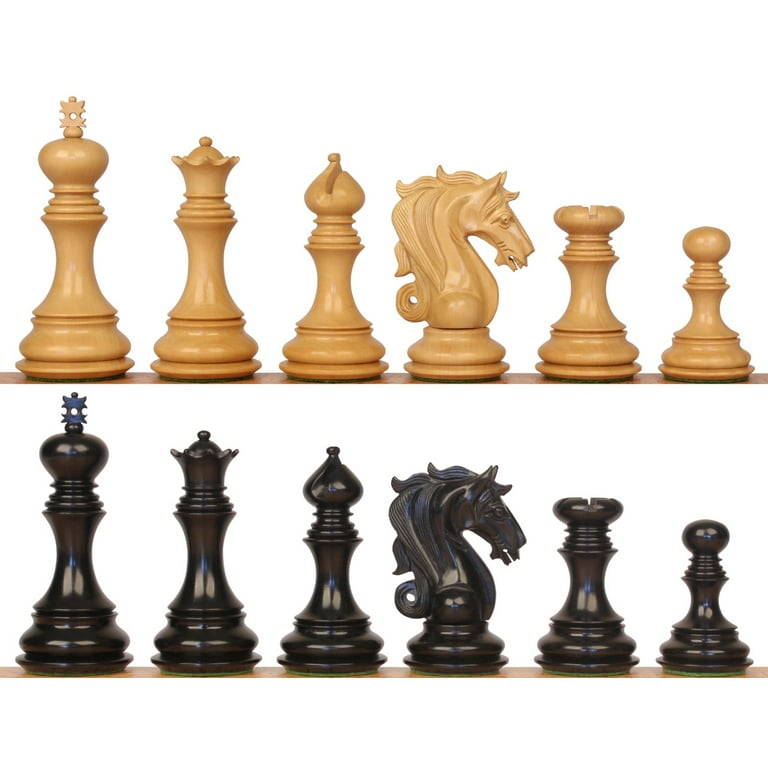Why You Must Play Chess: The Benefits of Taking Part In This Ageless Pundit Obstacle
Chess is even more than a simple video game; it acts as a rigorous psychological exercise that sharpens various cognitive abilities. Players participate in critical thinking and establish analytic abilities, which can have long lasting benefits in everyday life. The technique required for renovation fosters patience and resilience. The real essence of chess lies not simply in its intellectual demands yet in the connections it cultivates within an area. Exploring these dimensions exposes much about why chess continues to be timeless.
Enhancing Cognitive Skills
Playing chess substantially enhances cognitive skills, making it a beneficial task for individuals of any ages. The video game needs strategic reasoning and insight, requiring gamers to expect their opponent's moves while developing a winning approach. This psychological workout hones emphasis and concentration, essential components of cognitive feature.

In addition, chess motivates creativity, motivating gamers to explore innovative strategies and unconventional methods to the video game. As they navigate the chessboard, individuals create persistence and resilience, necessary characteristics for cognitive growth. On the whole, the multifaceted cognitive advantages of chess make it an improving pursuit, advertising lifelong mental dexterity and intellectual involvement.
Increasing Problem-Solving Talents
Various research studies have actually revealed that participating in chess can greatly enhance analytical abilities. The game needs players to assess complex placements and prepare for the opponent's relocations, fostering crucial thinking abilities. As they navigate numerous situations, chess players develop the capability to assess several results and make critical choices under stress. This procedure enhances their ability to approach real-life troubles with an organized way of thinking.
In addition, chess promotes the identification of patterns and the application of logical reasoning, abilities that are vital in effective analytic. Players learn to evaluate risks and rewards, improving their judgment in unclear scenarios. The recurring nature of chess play strengthens these skills, enabling individuals to move their improved analytical capabilities to scholastic and specialist contexts. Inevitably, chess works as a beneficial device for anybody looking for to sharpen their logical abilities and enhance their overall cognitive functioning in challenging scenarios.
Growing Patience and Technique
While participating in chess can be an interesting experience, it also calls for a considerable level of persistence and technique. Gamers have to find out to very carefully think about each move, weighing potential outcomes and methods. This thoughtful strategy fosters a way of thinking that values long-term success over immediate gratification. In chess, rash choices often lead to unfavorable effects, enhancing the importance of taking one's time to assess the board and prepare for a challenger's feedbacks.

Self-control is additional cultivated through regular method and research study. Players commonly devote hours to improving their skills, studying tactics, and evaluating previous games. This dedication to understanding the game infuses a feeling of obligation and willpower, necessary characteristics that extend beyond the chessboard. Inevitably, the combination of persistence and self-control not just improves a gamer's chess capacities but likewise contributes to individual growth, equipping people with essential tools for navigating difficulties in different elements of life.
Fostering Creativity and Creative Imagination

Strategizing steps entails not simply logic however additionally the capacity to anticipate a challenger's responses, urging gamers to imagine numerous paths and alternatives. As players explore various tactics, they learn to introduce and adapt, improving their creative analytic skills.
Furthermore, the game's complexity invites gamers to explore unique ideas and methods, bring about individual designs of play. This expedition supports a sense of imaginative expression, as each gamer crafts their very own method to challenges on the board. Eventually, chess ends up being a canvas for creative thinking, enabling people to share their unique perspectives while developing their imaginative abilities
Building Social Connections and Community
Playing chess supplies possibilities for individuals to network with competitions and neighborhood chess clubs. These settings foster connections among players, creating a feeling of recreation center around a shared interest. Taking Learn More part in these tasks not just boosts skills yet additionally builds lasting relationships.
Networking Via Tournaments
When participants involve in chess tournaments, they typically find themselves engaged in a vivid neighborhood of like-minded individuals. These occasions offer an outstanding system for players to create connections, share methods, and celebrate their enthusiasm for the video game. Participating in friendly competitors cultivates friendship, as players from varied histories collaborated to test each other. Networking possibilities abound, with many participants forming lasting relationships that expand past the chessboard. Furthermore, these tournaments typically attract enrollers and chess fanatics, better improving the possibility for expert connections. As players take part in discussions regarding techniques and experiences, they build a network that can lead to future collaborations and possibilities within the chess globe and past.
Local Chess Clubs

Supplying an Enjoyable and Engaging Obstacle
Chess supplies a distinctively promoting experience that mesmerizes gamers of all ages, as it combines tactical thinking with the thrill of competition. This ageless game provides an engaging challenge, encouraging people to believe seriously and artistically. Each match unfolds as a fight of wits, where players have her response to anticipate their challenger's steps while creating their own approaches.
The intellectual involvement chess offers is matched by its ability to delight. Gamers usually locate themselves immersed in the game, shedding track of time as they navigate intricate settings and tactical issues (Chess). This enhanced focus fosters a sense of success, specifically when a hard action leads to victory
Moreover, chess advertises social communication, allowing players to bond over shared experiences and difficulties. The game's countless variants assure that no two sessions are alike, maintaining individuals enthusiastic to improve their skills and techniques. This dynamic blend of obstacle and enjoyment makes chess an irresistible search.
Often Asked Inquiries
Can Chess Be Played Online or in Individual?
Chess can be played both online and personally. On-line platforms supply gamers the ease of competing look at this website versus challengers worldwide, while in-person video games promote social communication and physical existence, enriching the total experience.
What Age Is Best to Start Discovering Chess?
Professionals recommend that kids can begin finding out chess as very early as age 5 or 6. At this age, they can grasp fundamental principles, enhancing cognitive abilities while fostering a love for the video game that lasts a life time.
Are There Chess Tournaments for Beginners?
Yes, there are chess competitions especially made for beginners. These events give an encouraging environment for amateur players to obtain experience, improve their abilities, and delight in the affordable spirit of chess without dealing with sophisticated opponents.
How much time Does It Require To Come To Be Skillful at Chess?
Coming to be competent at chess usually calls for consistent practice over numerous months to years. Aspects such as private dedication, previous experience, and study of techniques significantly affect the moment needed to reach a proficient level.
What Resources Are Offered for Knowing Chess Strategies?
Countless resources exist for learning chess approaches, including online tutorials, publications by prominent writers, chess applications, and interactive web sites. Lots of players also take advantage of signing up with regional clubs or taking part in on-line forums for real-time insights.